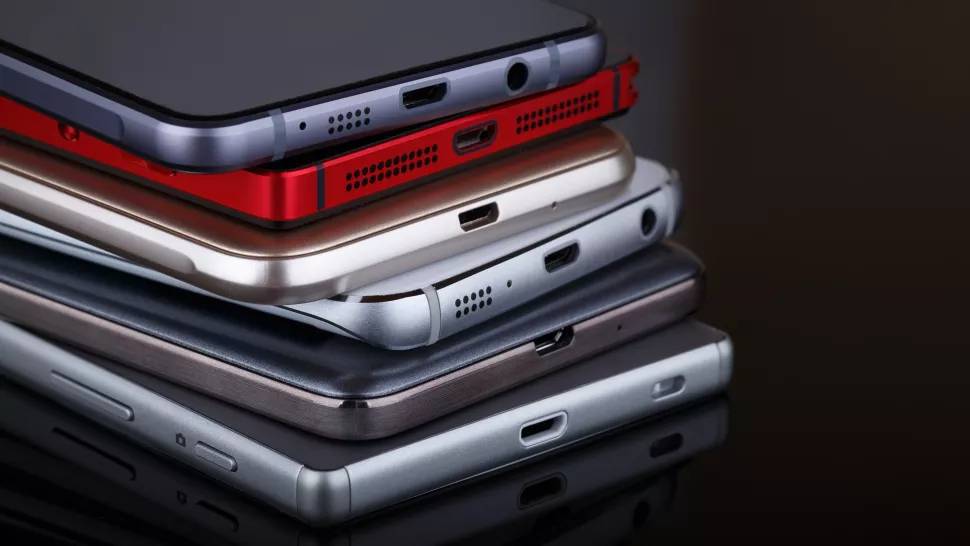
For most people, recycling their Smartphone is as simple as tossing it in the recycle bin at your local electronics store – and then forgetting about it – without truly realizing the hidden hazards of recycling their Smartphone. At this point, you may be wondering: what can be so hazardous about recycling your old mobile device?
Keep In mind, that there is a right way to recycle your mobile gadget, and then there is a wrong way.
So, now you may be wondering, what happens if I forget to take the necessary precautions before tossing my device into the recycle bin? Well, statistics show that 1 in 4 devices that are processed for recycling, are accessed by data thieves – since your data is as good as gold – finding any useful information can prove to be a fruitful find for data thieves.y to do it. Subsequently, the right way to do it is to restore your device back to its default factory setting – in essence deleting all your private data on your device. In addition to that, removing your SD card is also crucial – as many users forget to remove their SD cards before recycling their old cellular phones.

Consequently, once crooks get access to your Smartphone or portable device, it’s only a matter of time before your personal information, such as copies of your banking statements, passport copies, driver’s license copies, and residential address and perhaps even your credit card information could be obtained by criminals. To make matters worse on your end, it is extremely rare for the victim (you) to find out about this incident – usually most victims find out once they start receiving calls from collection agencies – as most victims of identity theft commonly have their credit cards maxed out by crooks – without even a whim of suspicion.
Today – more than ever – we are storing extremely personal information on our mobile devices – especially now that smart phones are within the grasp of the average mobile phone consumer. Since smart phones are as nearly capable of processing and saving information as your laptop, many users begin to save their personal documents and media on these portable devices – without realizing the consequences if they end up losing their devices. However, today – and this especially true for professionals – that portable smart devices have become a necessary tool for improving workplace productivity and overall convenience.
Therefore, we cannot completely refrain from storing personal information on our mobile devices. So, what other options are available to counteract this issue? Well, for once, you can download the several – free and paid – mobile data security applications available on your respective app store. Perhaps the most popular and comprehensive application is Folder Lock which is available on Android and Windows mobile operating platform. Regardless, of which application you decide to protect your personal data with, make sure to read the reviews and then make your decision. However, there’s little doubt that your best option is to avoid storing personal details on your mobile device all together.
Hazards Of Mobile Phones
1. Radiation Exposure: Mobile phones emit radiofrequency energy, a form of non-ionizing radiation, which can be absorbed by the body. Long-term exposure to this radiation has been linked to an increased risk of brain cancer, tumors, and other health problems.
2. Distracted Driving: Using a mobile phone while driving can be extremely dangerous. Studies have shown that talking on a cell phone while driving can impair a driver’s reaction time and increase the risk of an
Things Happens To Phone When Recycle It
When you recycle your phone, it is sent to a recycling facility where it is disassembled and the components are separated into different materials that can be reused or recycled. The plastic and metal are melted down and reused to create new products, while the batteries and other hazardous materials are safely disposed of. The remaining parts are then recycled into new products or sold to be reused.
Environmental Hazards Of Not Properly Recycling Cell Phones
The environmental hazards of not properly recycling cell phones include:
1. Contamination of the environment with toxic chemicals and metals from the phone’s components.
2. Pollution of the air, water, and soil from the release of hazardous materials.
3. Waste of valuable resources that could be reused or recycled.
4. Risk of health problems from exposure to hazardous materials.
5. Potential for dangerous fires and explosions due to improper disposal of lithium-ion batteries.
Things To Do Before Recycling Phone?
1. Back up your data. Make sure to back up all important data on your phone before recycling it.
2. Erase your data. Make sure to erase all personal data and accounts from your phone before recycling it.
3. Remove your SIM card and other removable parts. Make sure to remove any removable parts such as your SIM card, memory card, and battery before recycling.
Is It Safe To Recycle An iPhone?
Yes, it is safe to recycle an iPhone. Many companies offer services to safely recycle iPhones. You can also check with your local municipality to see if there are any recycling centers that accept electronics.
Why Shouldn’T You Throw Away Old Phones?
Old phones contain hazardous materials and should not be thrown away as they can contaminate the environment. Additionally, many of the components in old phones can be recycled or reused. By recycling your old phones, you can help reduce waste and keep hazardous materials out of landfills.
Do Old Phones Emit More Radiation?
No, old phones do not emit more radiation than newer models. All phones, regardless of age, are required to meet the same safety standards. However, it is important to remember that all phones emit some level of radiation, so it is important to use your phone responsibly and keep it away from your body when possible.
Are Old Phones A Fire Hazard?
No, old phones are not a fire hazard. However, it is important to take proper precautions when handling and disposing of old phones. Make sure to completely disconnect the battery and dispose of the phone in an environmentally-friendly manner.
Harmful Chemicals That Are Found In Cell Phones
1. Lead: Found in batteries and circuit boards
2. Mercury: Found in batteries and LCD displays
3. Cadmium: Found in rechargeable batteries
4. Arsenic: Found in circuit boards
5. Beryllium: Found in circuit boards and other parts
6. Phthalates: Found in plastic casings and other plastics
Dangers To Be Aware Of For Mobile Phone Users
1. Radiation: There is potential for radiation exposure when using a cell phone.
2. Eye strain: Prolonged use of a cell phone can lead to eye strain and headaches.
3. Repetitive motion injuries: Holding a cell phone for extended periods of time can result in repetitive motion injuries.
4. Distraction: Cell phones can be a major distraction when driving, walking, or engaging in other activities.
Are Old Cell Phones Toxic?
Yes, old cell phones can be toxic due to the materials used in their construction, such as lead, mercury, and other hazardous materials. These materials can be released into the environment if the cell phone is not properly disposed of.
Ways Overuse Of Cell Phone Can Affect Negatively
1. Physical Health: Prolonged use of a cell phone can lead to neck and shoulder pain, as well as headaches and eyestrain.
2. Mental Health: Excessive use of a cell phone can lead to increased stress, anxiety, and depression.
3. Social Health: Overuse of a cell phone can lead to isolation, as well as a lack of face-to-face communication.
Powered by NewSoftwares.net
